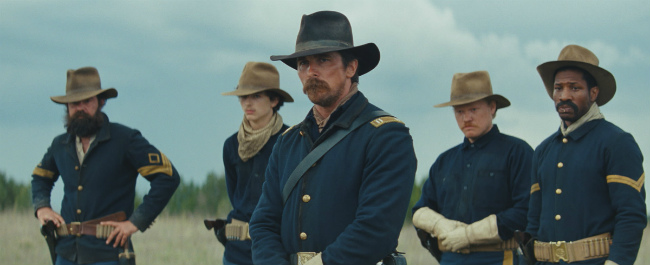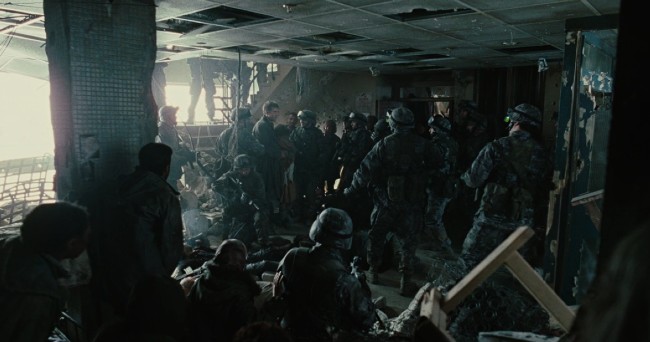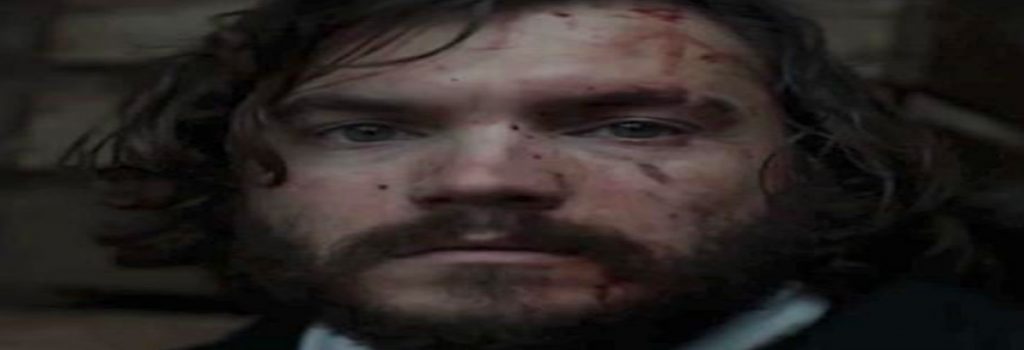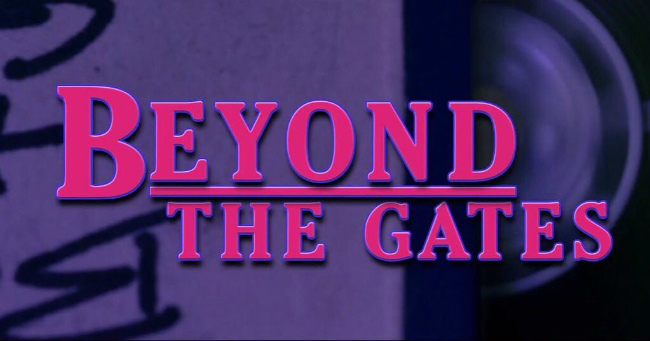The Directors: The Films of David Fincher Part 2
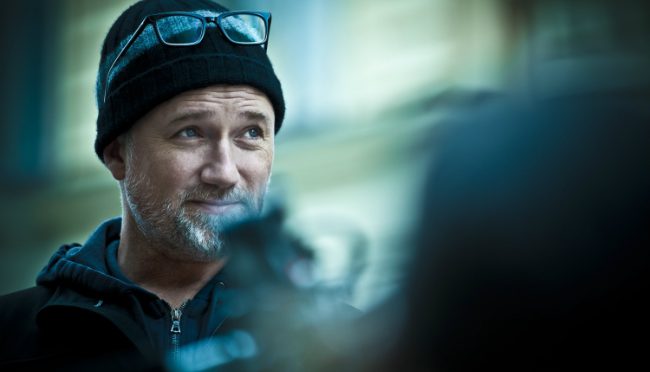
David Fincher’s Mindhunter is set to stream in a few weeks. Our look at the films of David Fincher continues with three more movies.
(Spoilers ahead) Mindhunter is only a few weeks away. We’re moving on to part two of our look at the films of David Fincher.
The Game (1997)
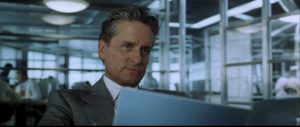
Nicholas Van Orton (Michael Douglas), a wealthy investment banker, is the king of an empire left to him by his father. Van Orton runs his company and his life like a king. He’s strict, reserved, and cut off from everyone including his brother Conrad (Sean Penn). Van Orton lives in a modern day castle literally sitting on top of hill looking down on a city famous for its hills, San Francisco. Like a king from a Shakespearean play, Van Orton is prime for a fall.
Fincher’s movies are famous for their opening credits. Seven‘s pastiche of notebook scribbles, the giant titles of Panic Room and the falling buttons of The Curious Case of Benjamin Button. Many cinephiles dissect the font, type, and style of the credits more than the movie itself. Fincher chucked the opening credits for The Game. Fincher replaced the opening credits sequence with a home movie of Nicholas Van Orten’s childhood birthday. When the film opens Van Orton is turning 48, the same age has his father when he committed suicide. The home movie serves not so much as flash backs but memories of his father who has haunted him his entire life but especially on his birthday.
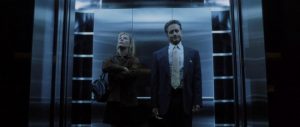
The reality tv genre has been a staple on networks for so long viewers don’t take for granted that these shows aren’t “real.” There have been plenty of stories on how contestants were manipulated into different situations to boost ratings, scenes edited for affect, and in some cases re-shot to make scenes appear more authentic. The Game, like these reality tv shows, isn’t reality but hyper reality. Van Orton isn’t sure what’s real and neither is the viewer. The Game is a smart movie that keeps us guessing at every turn.
The Game is a rabbit hole (Hence Jefferson Airplane’s “White Rabbit”) Van Orton starts down the moment he decides to play The Game, a birthday gift from his brother. It’s a rabbit hole we all willingly went down with Nicholas Van Orton the moment we decided to watch The Game. Once on the other side of the hole, Van Orton is never the same.

The Social Network (2010)
Love Facebook? Hate Facebook? Indifferent to Facebook? It doesn’t matter. Facebook has an average of 2 billion active users. Hundreds of thousands of posts, comments, and shares are uploaded every second. Billions of pieces of information are shared daily. Odds are good your grandmother has made a post or two. Facebook isn’t going anywhere. It’s ingrained in our daily lives. Hell, when I’m finished with this article I’m going to post it on our Facebook page.
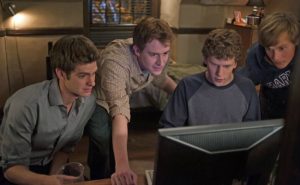
The Social Network, told mainly in flash backs, starts at a frantic pace. The lulls, if they can be fairly called lulls, occur during depositions between Mark Zuckerberg and Eduardo Saverin and Zuckerberh and the Winklevoss brothers. It’s a tool used to slow the movie down so we can take in and process what happened in the previous scene. The result is a movie with a two hour run time that feels compact with not a wasted scene between opening and closing credits.
Jesse Eisenberg has made a career out of playing the whiny, dumped upon guy, the guy who seems to have been born in the friendzone. It’s what we have come to expect from him. When he acts against type (Now You See Me, Batman Vs. Superman) it comes off as a forced performance and unbelievable. Did anyone believe Eisenberg as Lex Luthor?

In The Social Network, Fincher got the best performance of Eisenberg’s career. Zuckerberg comes off as the kid who was picked on in school and never got over the taunts and jabs. Now that he’s rich and famous he’s getting back at everyone who he imagined has slighted him. His portrayal of Mark Zuckerberg as an egotistical, narcissistic asshole was so believable it earned him an Oscar nomination. Ultimately, Zuckerberg, as he keeps refreshing ex-girlfirnd Erica Albright’s Facebook page to see if she has accepted his friend request, is shown as someone who can not accept the fact that someone is not his friend.
Marylin Deply tells him,”You’re not an asshole, Mark. You’re just trying so hard to be.” It’s a great line expertly delivered by Rashida Jones. Except Deply didn’t have the advantage of seeing what we saw. If she had been watching The Social Network with us she would know he is an asshole. Is this the real Zuckerberg? Zuckerberg did try to prevent the release of the movie. Who knows? The one thing we can tell you is true: Follow us on Facebook.

The Curious Case of Benjamin Button (2008)
The grit and grime of Seven put Fincher on the map. The deconstructive narrative of Fight Club cemented Fincher’s reputation as a visionary director. Fincher’s films are filled with damaged people (a wife framing her husband for murder, a narcissistic tech-entrepreneur) and dark themes ( a serial killer showing exposing the true face of humanity, a family coming to grips with its horrific past). The Curious Case of Benjamin Button is the complete opposite of every Fincher film to date.

Benjamin is indeed damaged. His insides age correctly, but outwardly he ages backwards. It would be enough to drive anyone a little crazy or bitter at the world. While other characters in Fincher’s canon, with lesser reasons, choose a destructive path in life Benjamin chooses a more positive path in life. He accepts his lot in life, challenges, and at the end of his life chooses to leave the one woman he has ever loved instead of burdening her with the responsibility of raising two children. Benjamin maybe the purest character in any of Fincher’s films to date.
When The Curious Case of Benjamin Button was originally released it was unfairly compared to Forrest Gump. The two movies could not be more different. Forrest Gump puts the titular character at the center of historical events. Forrest was in Vietnam, he met president after president, and he even broke Watergate. Whatever Gump touched, whether it was on accident or not, turned to gold. It’s only because the time the movie is set in that Benjamin is involved in historical events. However, he’s never at the center of events like Forrest. Benjamin has as much involvement in history as anyone else living during the same period.

Fincher’s Benjamin Button plays out more like a fable than the realism of Robert Zemeckis’s movie. We never know why Benjamin ages backwards. Maybe it has something to do with the clock Monsieur Gateau designed to run backwards in the hopes the dead soldiers of WWI would return. The clock stopped working around the same time Benjamin would have been an old man and it only started running backwards again after Benjamin dies.
The Curious Case of Benjamin Button earned thirteen Oscar nominations. It took home well-deserved statues for Art Direction, Make Up, and Visual Effects. It was the first time Fincher was nominated for Best Director, the second nomination was for The Social Network. Beyond the statues The Curious Case of Benjamin Button is simply a powerful and heartfelt movie the likes of which Fincher may never make again.

Keep glued to our page. The films of David Fincher continues in part three of our review of the best Fincher films to date. (Be sure to check out Part 1)

